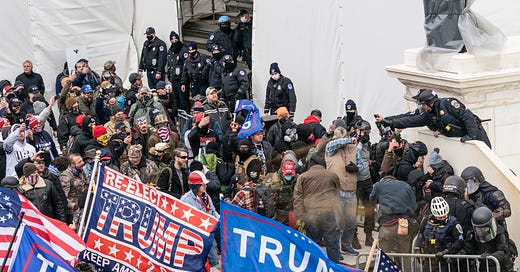We Don't Need a Commission to Study January 6
We need a functioning government. National commissions rarely solve the problems they are formed to address--and often, they create new ones.
Hey political junkies! Last weekend I got an email from an angry reader who thought they had subscribed for free but instead was charged by Substack.
Here are a couple of tips. I don’t store your credit card, but Substack does. If you subscribe to this newsletter through the page that shows your email and has a subscribe button, you may be charged. This …
Keep reading with a 7-day free trial
Subscribe to Political Junkie to keep reading this post and get 7 days of free access to the full post archives.



